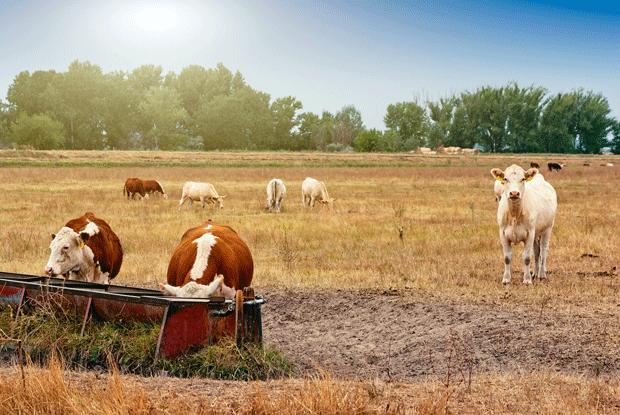12 tips for caring for cattle this summer: grow healthy calves and yearlings

Grow healthy calves and yearlings this summer by reading these helpful tips.
Words: Dr Clive Dalton
The main priority over summer is for this season’s calves and yearlings, as they need to keep growing. Hand-raised weaners will be more at risk than calves that have been suckling off their mother for 3-4 months as these animals will be much heavier and in better condition.
Years of research have shown that stunting young stock has lifetime effects. Yearling cattle should be well fed if they are to be mated, but bulls can also mate well-grown calves which can cycle. If young heifers do get pregnant, they need to be aborted as early as possible.
The ideal growth target of 1kg/head/day is only achievable on good quality pasture, and won’t be possible when it gets dry. Good quality supplements need to be kept for any drought period, and this means you need silage as hay has little feeding value. Concentrates may be needed too, and these are expensive. Surplus fruit and vegetables may be available, and feeding tree prunings is a good option too, but only after checking which may be toxic. Yew, macrocarpa, rhododendron and oleander are particularly dangerous.
Mature beef cows do well on dry summer pasture, as long as they have plenty of clean water and shade. However, cows of dairy breed origin that have suckled more than one calf will be thin, and may need supplements to prevent more loss of body condition. If drought conditions prevail, get rid of any old cows.
Young stock may start scouring, even on dry pasture, but don’t assume it’s worms and automatically treat them with a pour-on or an oral drench. Always check with your vet first, as there can be many causes. Our persistent use of easy-to-apply pour-ons over the last 30 years means cooperia worms are now highly resistant to anthelmintics.
Bulls are a major hazard, especially over the holiday period with strangers around. Get rid of any bulls you don’t need for next season. Never trust a bull, especially a friendly one, as the day he wants to play with you could be your last. Water is a top priority for all cattle in summer, so keep troughs clean and make sure there are no leaks. A lactating cow will drink 70 litres a day, or more if she cannot find shade. Shade is very important.
FE is spreading to more areas and is a real concern in young stock, so discuss prevention with your vet and what product to use. Zinc boluses are available for cattle, but they may need extra zinc orally if spore numbers spike. January 1 is the time to start as it takes around three weeks for zinc to build up in the liver for protection.
12 SUMMER CATTLE TIPS
• Calves and yearlings are your main priority, so good quality supplements are needed to keep them growing.
• Poor growth rates can lead to their permanent stunting.
• When feeding out supplements, make sure none are wasted or cause damage to pasture.
• Wean all calves suckling on cows, and feed weaned calves well.
• Get rid of all bulls not needed, and watch for any yearlings that may have got pregnant as they will need to be aborted.
• Check water systems and power fences before leaving for your holidays.
• Double-check boundary fences and gates on the roadside, and do not risk grazing the road verge with any stock.
• Check your personal liability insurance.
• In really hot weather cattle need shade and treatment for biting flies (which are not houseflies).
• Get FE prevention underway on January 1.
• Don’t drench for worms without veterinary advice.
• Regularly review security systems on the farm.
Love this story? Subscribe now!
 This article first appeared in NZ Lifestyle Block Magazine.
This article first appeared in NZ Lifestyle Block Magazine.
